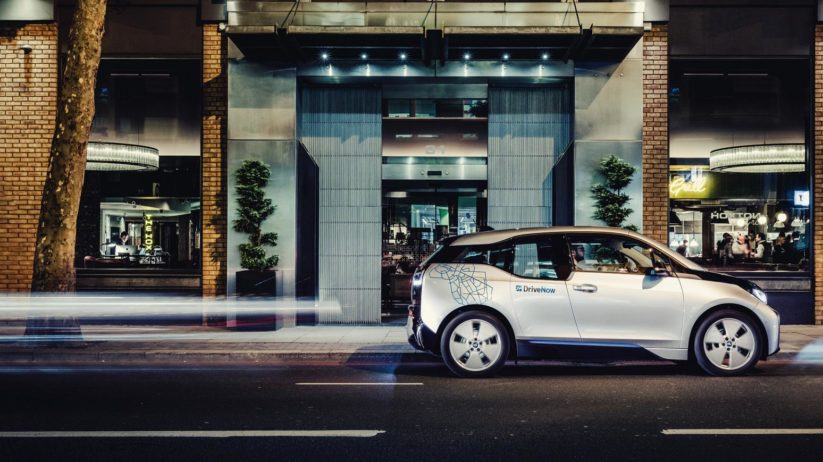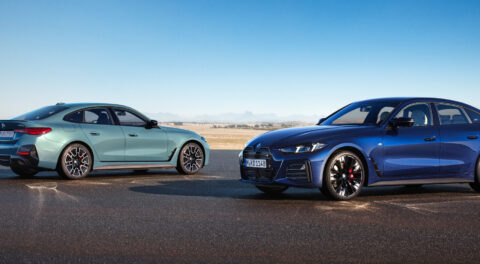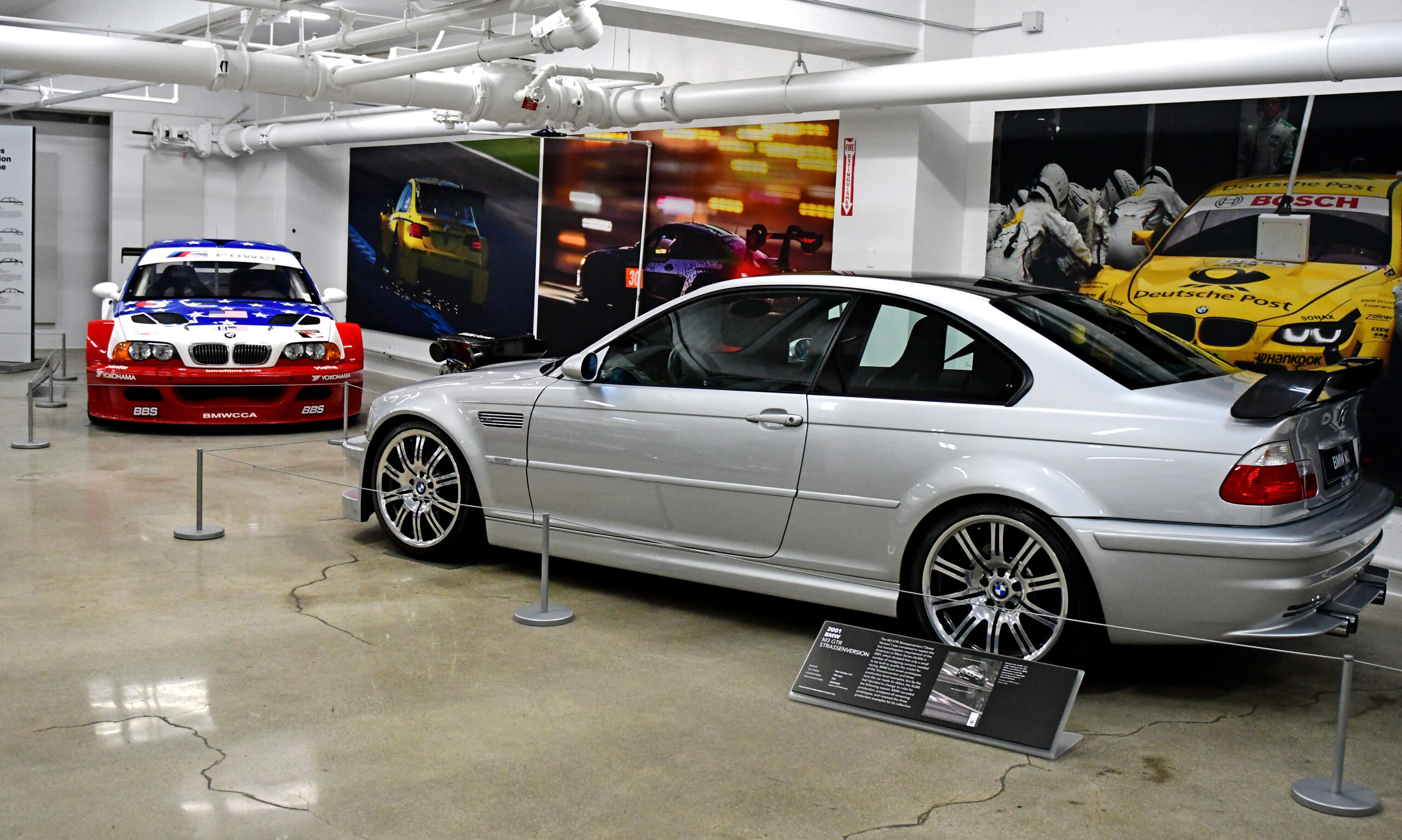The story isn’t over just yet for BMW and Daimler, and their struggles in car-sharing and the overarching mobility sector. The latest news is that the joint effort between both companies, which came together just last year, is withdrawing all of its car-sharing efforts in the U.S., while additional cuts are also planned for Europe where on-demand rentals, ride-hailing, and access to things like parking, charging, and other forms of transit has been markedly more successful. This development is merely the most recent in the ongoing saga, which seemed to have potential as early as the Spring of 2019, when both companies invested heavily in their mobility merger.
Unfortunately, things just don’t seem to be working out for the combined services which were offered in the U.S., the most important pillars of which were car-sharing and ride-hailing. You can get into the gritty details of what’s been playing out in our previous coverage, in which we chronicled the abrupt shutdown of ReachNow, which offered BMW rentals via an iPhone app, and the more recent multi-city withdrawal of ShareNow, the co-branded effort of a similar nature with Daimler that took the place of the latter’s Car2Go.
The official end of operations for ShareNow and Car2Go in the North American market is scheduled for February 29 2020. The primary reason cited is the, “volatile state of the global mobility landscape,” along with costs associated with operating in North America. Essentially in the same breath though, news outlets are also reporting that cuts are occurring in Europe as well, with things halting in Florence, Brussels, and London. That last city is an especially hard blow to the moral of those behind the DriveNow venture, which was started in London during December of 2014.
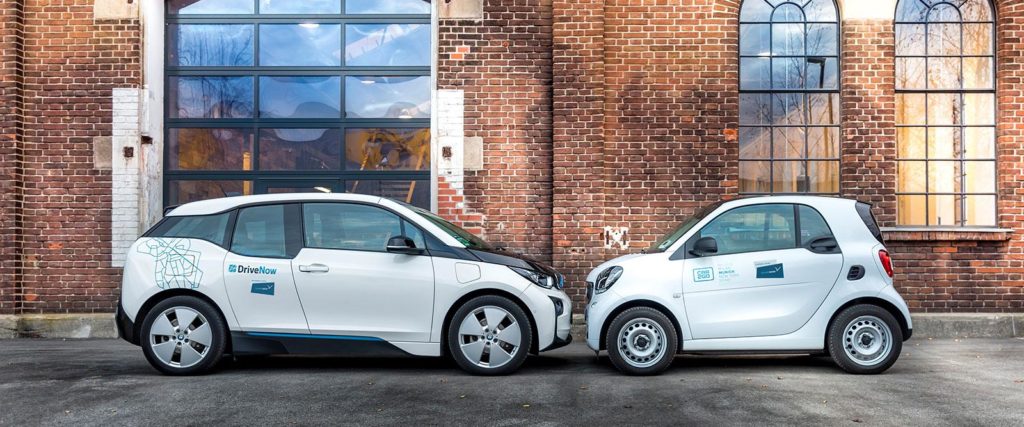
In the U.S., competition in the form of Uber and Lyft retains a clear level of market domination, but in Europe, where the mobility landscape is a bit more varied, other efforts like those which connect consumers with parking, charging, and ride-sharing services have been more successful. The diagram below gives a rough idea of which brands offer the equivalent services from each carmaker. BMW recently touted the profitable success of some of these efforts, like FreeNow, ChargeNow, and ParkNow, with the charging venture accounting for 85% of the European market and the other two offerings boasting hundreds of millions transactions by tens of millions of users.
Still, the future of the joint venture between the two bellwether German auto manufactures remains in question. With North America largely out of the picture for some of the core services being offered, the overall efficacy of the merger, which was originally valued at over $1 billion, and the various investments along the way have been called into question. As we’ve mentioned many times on this site, BMW and Daimler becoming unlikely partners on not only mobility, but also automation and potential platform and component sharing, is simply more evidence of the ground shifting beneath the foundations of automakers that have been in business for over a century. As car ownership and the way we get around, most specifically in big cities, transforms, auto manufacturers are racing to remain relevant, and the efforts outlined below are their answers. Tech has had an early lead in this space, and it’s becoming increasingly clear just how difficult it is to break into what is already a massive industry.—Alex Tock
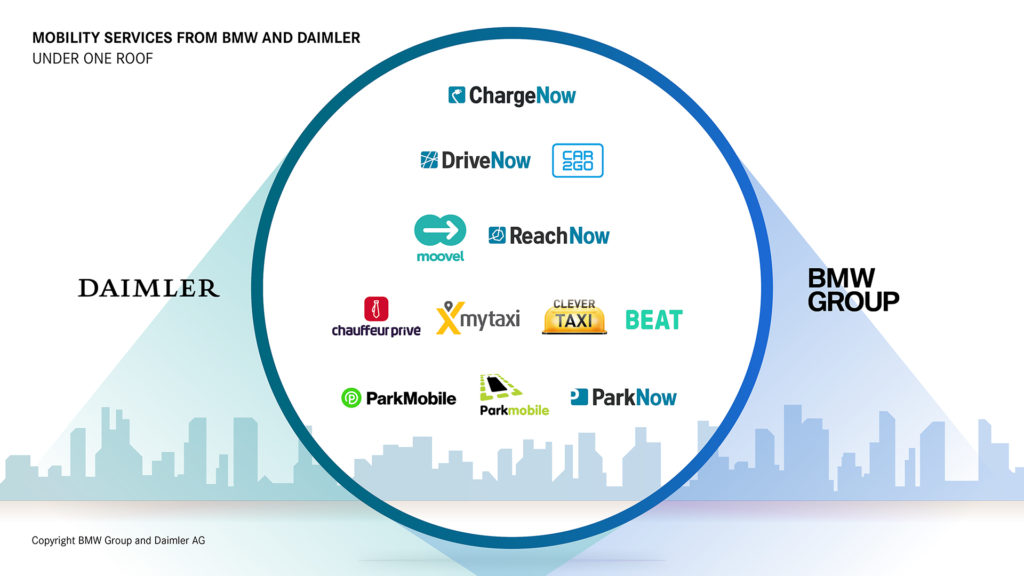
[Photos courtesy BMW AG.]

